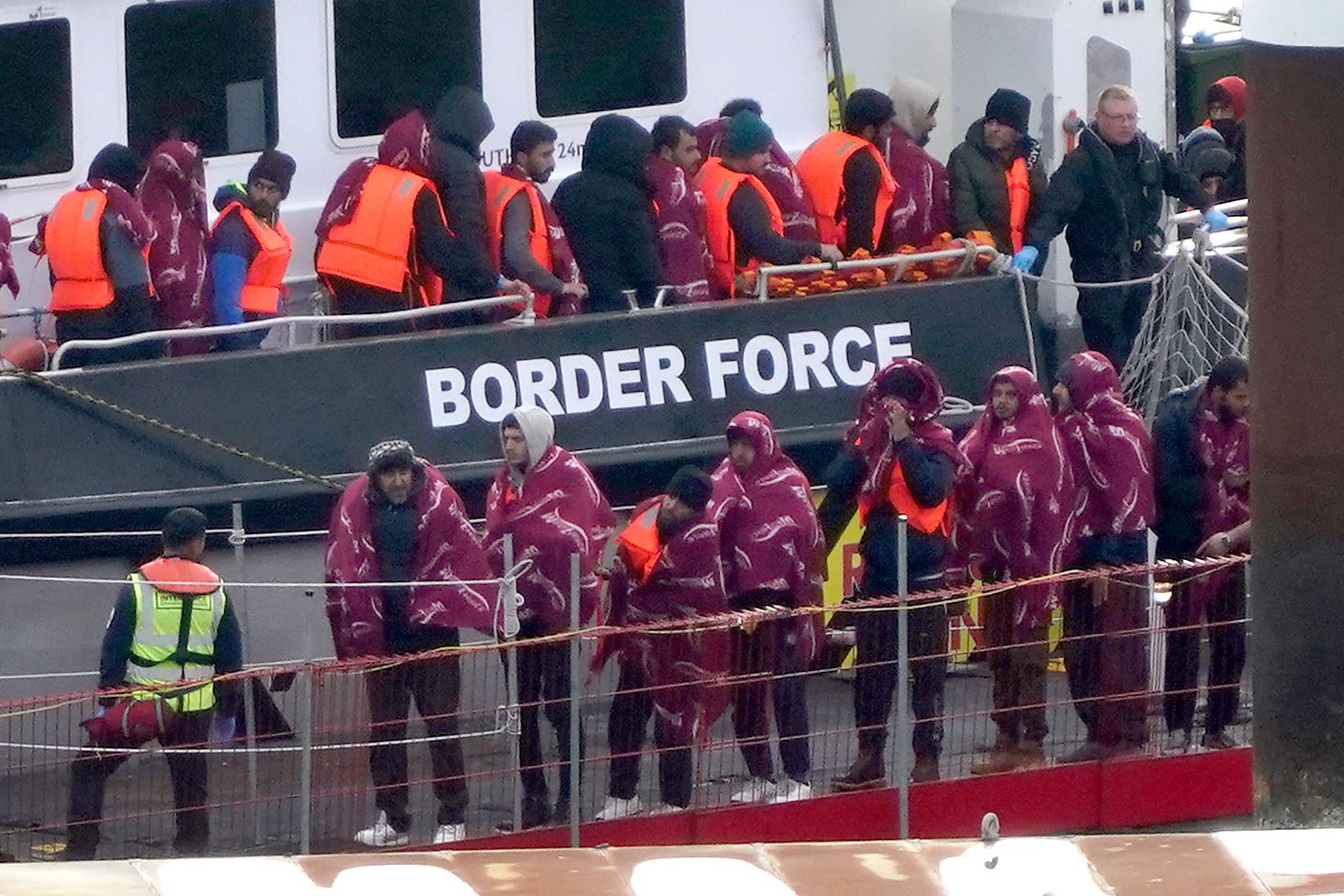Sunak’s patience ‘worn thin’ by Rwanda plan delays
The Prime Minister is seeking to make the plan legally watertight following the Supreme Court defeat.

Your support helps us to tell the story
From reproductive rights to climate change to Big Tech, The Independent is on the ground when the story is developing. Whether it's investigating the financials of Elon Musk's pro-Trump PAC or producing our latest documentary, 'The A Word', which shines a light on the American women fighting for reproductive rights, we know how important it is to parse out the facts from the messaging.
At such a critical moment in US history, we need reporters on the ground. Your donation allows us to keep sending journalists to speak to both sides of the story.
The Independent is trusted by Americans across the entire political spectrum. And unlike many other quality news outlets, we choose not to lock Americans out of our reporting and analysis with paywalls. We believe quality journalism should be available to everyone, paid for by those who can afford it.
Your support makes all the difference.Rishi Sunak said the Government is “finalising” legislation to push through his “vital” Rwanda asylum plan as his “patience is worn thin” by delays.
The Prime Minister met Rwanda’s president Paul Kagame on the sidelines of the Cop28 climate talks in Dubai, although Downing Street said it was a “brush-by” that lasted no more than 10 minutes.
Mr Sunak declined to say how much more money he would spend to get the scheme off the ground.
He stressed he is eager to “finish the job” after the plan to send some asylum seekers on a one-way trip to the African nation was dealt a blow when the Supreme Court ruled it unlawful.
His plan to save the policy involves the signing of a new treaty with Kigali and the introduction of emergency legislation allowing Parliament to deem the scheme safe, but this has been delayed.
The Prime Minister insisted that Mr Kagame remained committed to the deal and it would soon be finalised.
At a press conference in Dubai he said: “We have a deep partnership with Rwanda, which he’s committed to, as am I.”
He added: “We’re finalising the arrangements we have with them. It was good to check in with him on that and reiterate both of our commitment to making the partnership work.
“Paul and I have forged a very strong relationship over this issue. He’s keen to work very constructively with us, we’re keen to work very constructively with them.
“This is such a vital issue for the UK so it’s important that we get the details of all of this right.”
He said he looked forward to bringing the proposals before Parliament and the British public “soon”.
Earlier, he told broadcasters the goal is to “make sure that Parliament can declare unequivocally” that Rwanda is a safe place to operationalise the scheme.
Once affirmed by Parliament, he said, “there should be no more domestic blocks to us putting in place this programme”.
“But I’ve also been clear that I won’t allow a foreign court to block us from flights taking off.
“My patience is worn thin, the British people’s patience is worn thin.
“And although we’ve made great progress on this issue – reducing the number of small boat crossings by a third this year, something that everyone thought was impossible when I got this job – we’ve got more to go.
“I want to finish the job and that’s why I’ll get the Rwanda scheme up and running.”
Mr Sunak ducked questions on whether there is a limit to how much he would spend. The scheme would have a “crucial” deterrent effect, he told reporters travelling with him, adding: “If we can get that right, it will literally save us billions in the long run, so that is the right focus.”
The Prime Minister has been urged, including by sacked home secretary Suella Braverman, to adopt tough legislation that includes “notwithstanding” clauses that can prevent judges from applying protections in the Human Rights Act and the European Convention on Human Rights (ECHR) to asylum cases.
But Government lawyers have reportedly warned that instructing the courts to ignore the ECHR risks opening up more avenues for migrants to challenge the legality of deportation flights, on the basis that it would breach Britain’s convention obligations.
The Government’s hope of sending asylum seekers who arrive in the UK illegally to Rwanda is a key plank of Mr Sunak’s pledge to stop small boat crossings of the English Channel.
Asked how far he would go on the ECHR, Mr Sunak said: “I am completely confident, everything that we are doing complies with our international obligations.”